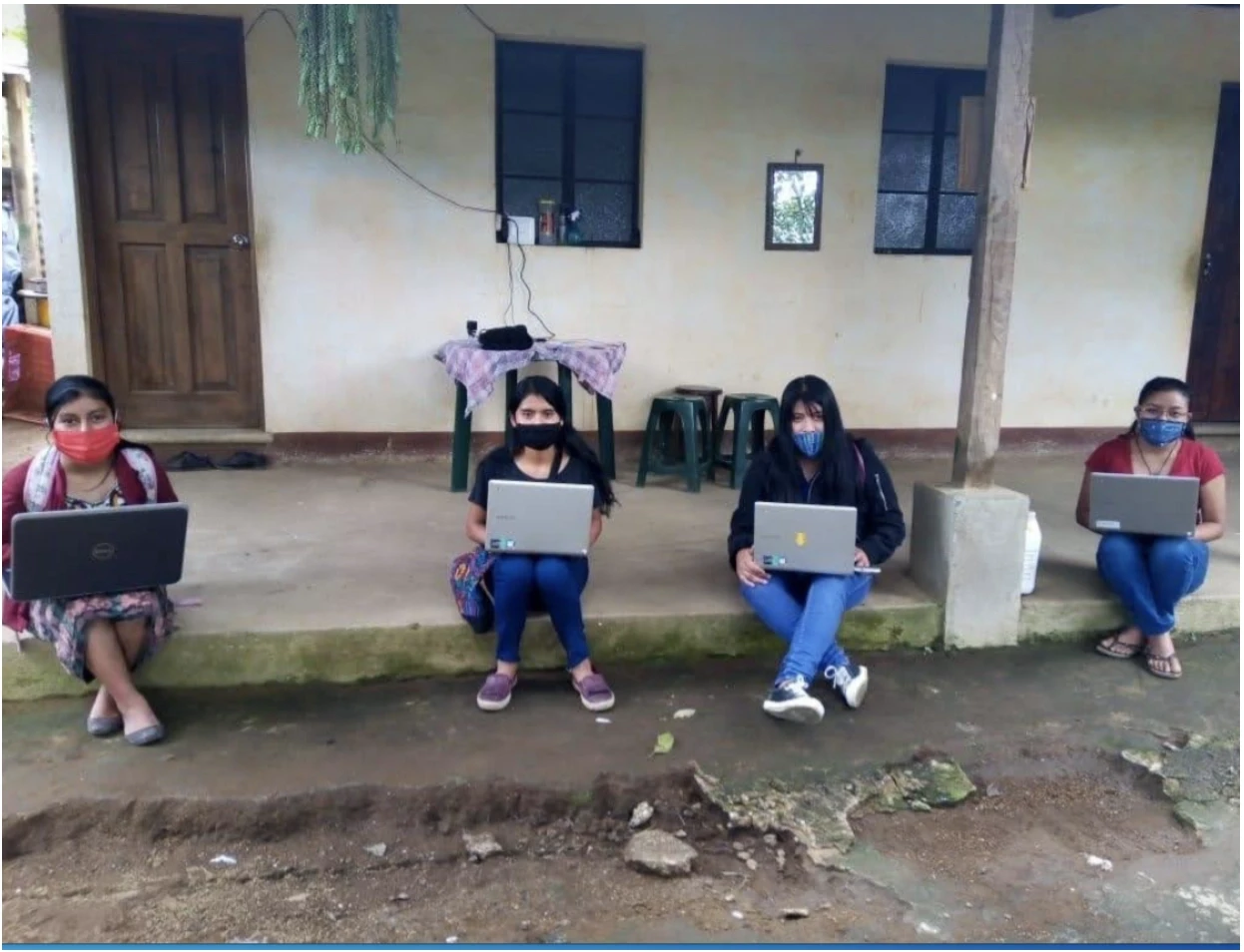CENG is excited to reveal the winner of our new logo competition! Read more →
CENG Volunteers Provide WiFi Routers to Students in Guatemala
Feb 16, 2021

When schools shuttered on March 13, I began to mentally assemble a list of several reasons why I loathe distance learning: the lack of interaction, hours-long Zoom sessions, the frustration of self-instruction, the monotony of the rinse-and-repeat daily routine ... it goes on. To me, it was an affront to the pedagogy I believed I was entitled to; what I didn't realize then was how fortunate I am to have these problems.
Over the summer, I had the opportunity to work with students from Juan Jose School in Guatemala. They, too, had been confined to their homes - yet the differences were stark: There was a disheartening lack of internet access, computers and infrastructure. Instead of online classes, staff biked to every student's house every week, hand-delivering the worksheet packets that would constitute their distance learning.

Cedric Chan taught the Beginning Scratch class to Guatemala students
In a collaborative effort between the nonprofits Computer Engineers of the Next Generation (CENG) and Dream Volunteers, I helped teach students from Juan Jose the basics of coding - something that, even in non-pandemic times, is only accessible to students in the few large cities. Originally, our team planned in-person lessons, but we quickly realized we would have to shift online. Compounding the challenges of a new platform was the fact that lessons were in Spanish - which few of our members are fluent in - forcing us to adapt our curriculum and making it far more ticklish a task to present.
Yet in spite of everything - our broken Spanish and all - the palpable excitement these students radiated made the experience impossible to be anything except fully gratifying. But it soon became evident that it wasn't enough. Each day, the student roster unreliably changed. When we asked Ludwing Estrada, the local teacher, about it, he told us that it had rained, so students' internet was malfunctioning.
I was stunned. The idea that weather was a variable in whether students got education the next day seemed incomprehensible to me.

Four girls from Juan Jose School were attending the CENG online Spanish coding classes in Scratch
Yet it was but a part of an even more widespread issue. We learned that the students we were serving - even with multiple siblings excitedly cramming into single computer screens - represented less than half of Juan Jose's student body. The rest didn't have internet access, a computer or both.
CENG's strives to inspire underrepresented communities to pursue computer science, and while we've had much success locally, the disparity I saw in Guatemala forced me to recalibrate my conception of equality.
When the sessions ended, we knew more had to be done. Our team spearheaded a campaign with Dream Volunteers' "Fund A Dream" program, which manages donations, to purchase communal WiFi routers for six villages around the area. The feat initially seemed fanciful, yet what seems like a little can go a long way. Just $50 can fund the installation of a router, and around $30 can service it for a month. It hit me that for $30, I could give an entire village access to the internet.
Members of the community seemed to understand that too, as in just a month, we reached our goal of $1500, covering the installation and half a year of service for all six routers.
Both CENG and Dream Volunteers continue looking for ways to help students in Guatemala and elsewhere. For now, though, I'm left with what Mr. Estrada said to us at our last class: "We consider our school and community to be a sort of family, always helping one another. And after sharing such laughter and great times, I'd like to say that we all consider your team as part of our family too."